ERP Decision Making
After all of the homework, preparation, and research, it is time to make a decision about ERP software. If you are lucky, one package is so clearly superior to the rest that the ERP decision is obvious, and any rational person would agree on it as the logical choice. However, if there are two or more close contenders, then you need to choose, and – equally important – be able to defend your choice.
Your ERP decision will be based on three distinct factors. The first is your perception of the effectiveness of the software; the second is the economics of the purchase, and the third is your perception of the business relationship with your ERP vendor. You may think that the last should be a moot point if the ERP software works well, and the economics are satisfactory, but it is still important. There is a huge difference between “works well” and “work perfectly” and how effectively you bridge the gap between those two conditions is largely dependent on the relationship you have with your ERP vendor. Ultimately, you will judge your vendors on three questions: 1. Will this vendor really listen to my concerns? 2. Will this vendor act on my concerns? 3. Am I important to this vendor?
Written Evaluation
How well the software works can be very tricky, especially if different modules have different relative advantages. The most important piece of advice in this article is this: If the choice between two ERP software packages is reasonably close, establish an objective written evaluation to justify your ultimate ERP decision. This evaluation requires hard thought and leadership on your part, because it has to be seen as both impartial and measuring the right things. The evaluation could be a list of questions, with a point awarded for each “yes” answer. Alternatively, it could be a weighted scorecard, listing each ERP module, its relative importance to the future health of the company, and its perceived effectiveness. This should align the best software with the company’s strategic direction. A weighted scorecard also allows for non-transactional considerations to be part of the evaluation: for instance, how difficult are upgrades? If you feel like your objective evaluation provides you with a drastically wrong conclusion, then recheck your evaluation logic. If the logic is sound, then the software solution may be counter intuitive. As ERP project leader, it is your responsibility to figure out which, and correct any problems. You will be expected to articulate clearly to your company leadership why you made the decision you did.
The closer performance evaluations turn out to be, the more important the role of economics become in the decision about ERP. Conversely, if a particular ERP solution is undeniably advantaged, as long as the economics are reasonable, you should select the advantaged software. Close performance evaluations actually give you a stronger negotiating position, because you are willing to go either way.
So make your ERP decision, and good luck. Remember, performance first, economics second, and vendor relationship third. But consider all three.
Free white paper
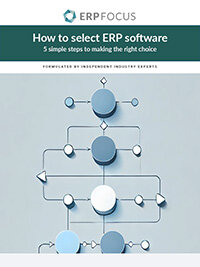
How to Select ERP
Learn to select your ERP in 5 easy steps by following our expert's advice
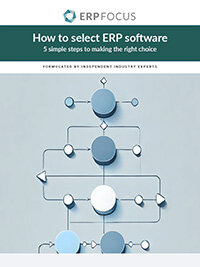
Featured white papers
-
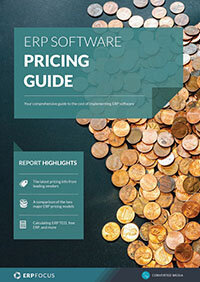
ERP Software Pricing Guide
Get the latest pricing information on over 80 popular ERP systems, and learn how to budget for your ERP project in our free guide
Download -
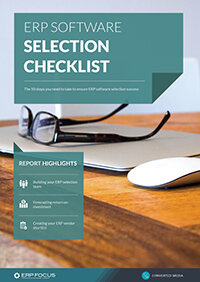
60-Step ERP Selection Checklist
Get the comprehensive checklist for your ERP selection project
Download -
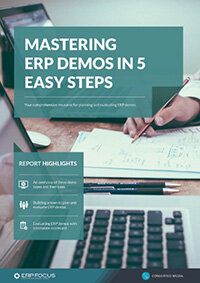
ERP Demo Guide & Scorecard
Master your ERP demo with 5 easy steps using our free guide (includes demo scorecard)
Download
Related articles
-

ERP for Food Distributors: Key Functionality
In a modern world where products are tailored to consumers, why should ERP for food distributors ...
-

CMMC Compliance: What Aerospace and Defense Manufacturers Need to Know
Key insights on CMMC compliance, deadlines, and securing DoD contracts with CMMC 2.0 certificatio...
-

The best ERP systems for process manufacturing
Consider these ERP systems when selecting your next process manufacturing ERP

